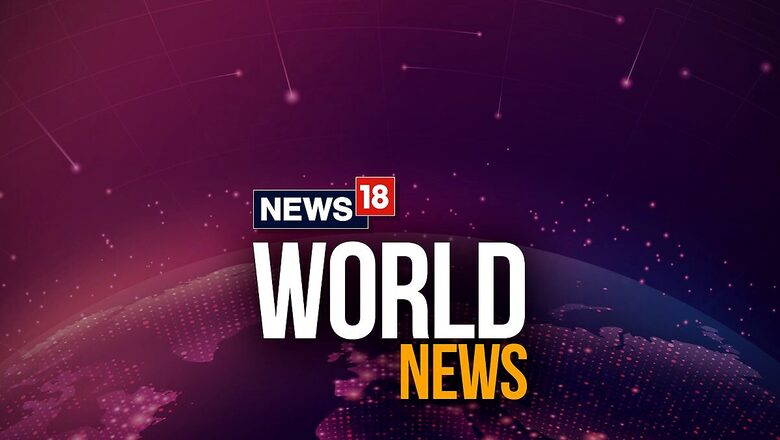
views
NEW YORK:A New York prosecutor told jurors that Donald Trump engaged in a conspiracy to corrupt the 2016 election and then tried to cover it up, as lawyers made their closing arguments in the former U.S. president’s criminal hush money trial on Tuesday.
Prosecutor Joshua Steinglass told jurors they would need to assess whether Trump, 77, falsified business documents to cover up a hush money payment to a porn star in the run-up to the 2016 presidential election.
But he said they also needed to consider broader political concerns, such as the possibility that Trump and allies like tabloid publisher David Pecker undermined the election by controlling what information would reach voters.
“This scheme, cooked up by these men at this time, could very well be what got President Trump elected,” Steinglass said.
Jurors could begin deliberations as soon as Wednesday.
Steinglass spoke after a lawyer for Trump urged jurors to set aside their personal views of Trump, the 2024 Republican presidential candidate and instead determine whether prosecutors had proven their case.
“If you focus just on that evidence you heard in this courtroom, this is a very, very quick and easy not guilty verdict,” Trump lawyer Todd Blanche said.
The case stems from a $130,000 payment in the final weeks of the 2016 election that ensured porn star Stormy Daniels would not tell voters her story of an alleged sexual encounter with Trump.
Blanche said Daniels had been trying to extort Trump by threatening to go public with her story as he battled a string of unflattering stories of sexual misconduct in the final weeks of the 2016 election. Trump denies wrongdoing and says he never had sex with Daniels.
Steinglass said it was irrelevant if Daniels was seeking a payday, because Trump broke the law by covering up evidence that his fixer Michael Cohen paid her $130,000 to keep quiet.
“You don’t get to commit election fraud or falsify business records because you think you’ve been victimized,” Steinglass said.
Prosecutors say the Daniels payment amounted to an improper campaign contribution because it kept voters from learning about an alleged affair that could have swayed their decisionmaking.
Steinglass referred to the testimony of Pecker, the former National Enquirer publisher who had described an agreement with Trump to pay for and bury stories that might have hurt his candidacy.
Prosecutors must prove Trump is guilty “beyond a reasonable doubt,” the level of certainty required by U.S. law.
Blanche drew a reprimand from the judge overseeing the trial for telling jurors the evidence was insufficient to send Trump to prison. Jurors are tasked with assessing guilt or innocence while judges determine punishment of those found guilty.
Justice Juan Merchan told jurors after they returned from lunch to ignore that statement. “That comment was improper and you must disregard it,” he said before prosecutors began their closing argument.
A conviction will not prevent Trump from trying to take back the White House from Democratic President Joe Biden in the Nov. 5 election. Nor will it prevent him from taking office if he wins. Opinion polls show the two men locked in a tight race.
IS COHEN CREDIBLE?
Blanche told jurors they could not trust Cohen, who testified that as Trump’s fixer he paid Daniels out of his own pocket and worked out a plan with Trump to be reimbursed through payments disguised as legal fees.
Blanche reminded them that Cohen had previously admitted to lying under oath, and said Cohen had lied again during the trial when he testified that he had spoken with Trump about paying off Daniels before the election.
“He is literally the greatest liar of all time,” Blanche said.
He said there was no evidence that Trump knew anything about how those payments were characterized in his company’s ledger. Prosecutors must prove that Trump knowingly broke the law.
Steinglass said Cohen’s dishonesty was a reflection of Trump’s malign influence.
“Mr. Trump not only corrupted those around him. He also got them to lie to cover it up,” Steinglass said.
The charges brought against Trump are misdemeanors on their own but prosecutors elevated them to felonies on the grounds that Trump was trying to cover up another crime – that of promoting a candidacy for political office by unlawful means.
Those “unlawful means,” prosecutors will argue, include excessive campaign contributions, tax violations, and other business records-related crimes.
If found guilty, Trump faces up to four years in prison, although imprisonment is unlikely for a first-time felon convicted of such a crime.
Blanche said prosecutors had not proven that there had been any underlying crime to cover up.
Trump faces three other criminal prosecutions as well, but none is likely to go to trial before the election.
Separate cases in Washington and Georgia accuse him of illegally trying to overturn his 2020 election defeat, while another case in Florida charges him with mishandling classified information after he left office in 2021.
Trump has pleaded not guilty in all of the cases and says they are an effort by Biden’s Democratic allies to hobble his presidential bid.
Disclaimer: This post has been auto-published from an agency feed without any modifications to the text and has not been reviewed by an editor




















Comments
0 comment